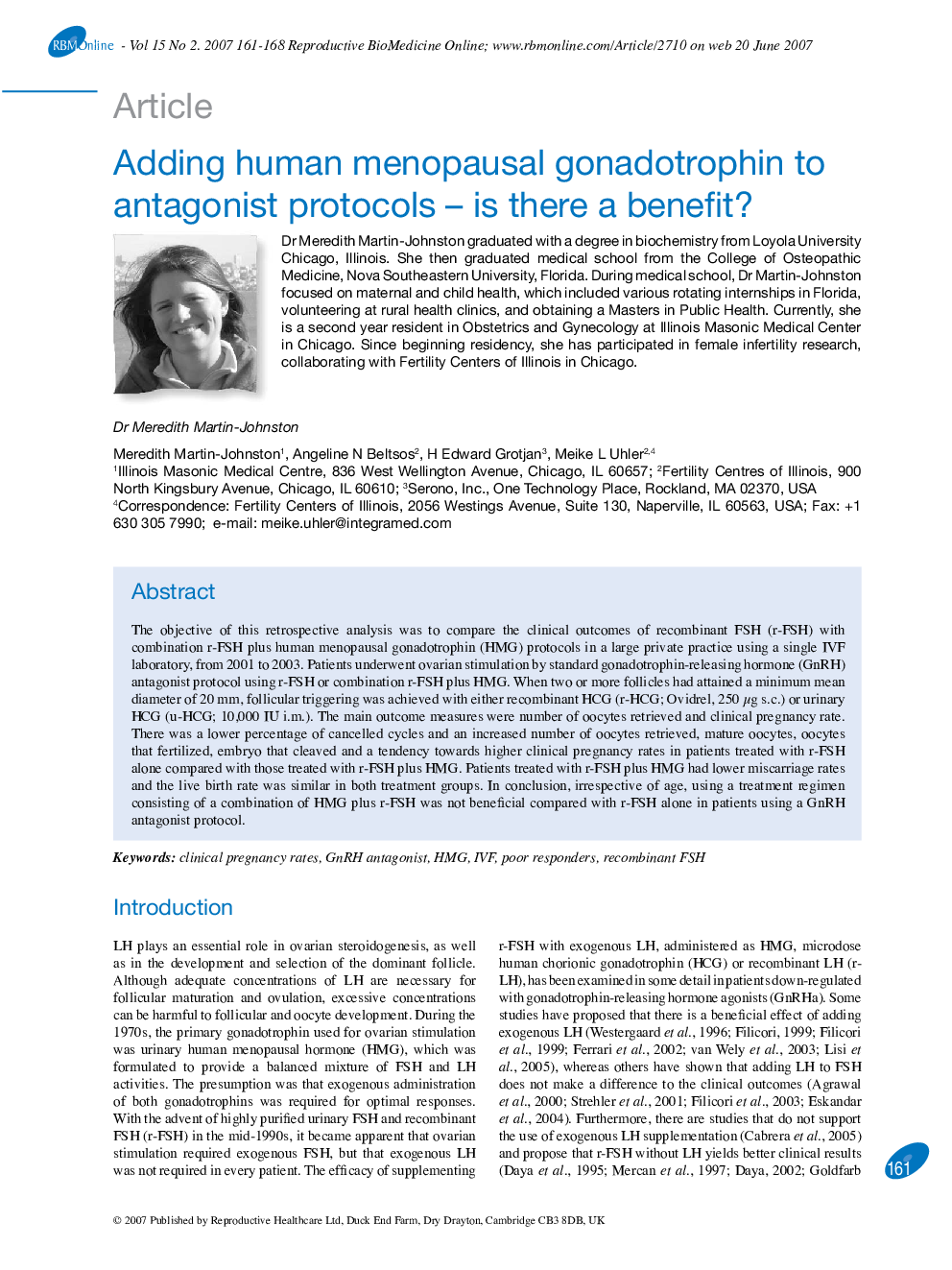| Article ID | Journal | Published Year | Pages | File Type |
|---|---|---|---|---|
| 3972628 | Reproductive BioMedicine Online | 2007 | 8 Pages |
The objective of this retrospective analysis was to compare the clinical outcomes of recombinant FSH (r-FSH) with combination r-FSH plus human menopausal gonadotrophin (HMG) protocols in a large private practice using a single IVF laboratory, from 2001 to 2003. Patients underwent ovarian stimulation by standard gonadotrophin-releasing hormone (GnRH) antagonist protocol using r-FSH or combination r-FSH plus HMG. When two or more follicles had attained a minimum mean diameter of 20 mm, follicular triggering was achieved with either recombinant HCG (r-HCG; Ovidrel, 250 μg s.c.) or urinary HCG (u-HCG; 10,000 IU i.m.). The main outcome measures were number of oocytes retrieved and clinical pregnancy rate. There was a lower percentage of cancelled cycles and an increased number of oocytes retrieved, mature oocytes, oocytes that fertilized, embryo that cleaved and a tendency towards higher clinical pregnancy rates in patients treated with r-FSH alone compared with those treated with r-FSH plus HMG. Patients treated with r-FSH plus HMG had lower miscarriage rates and the live birth rate was similar in both treatment groups. In conclusion, irrespective of age, using a treatment regimen consisting of a combination of HMG plus r-FSH was not beneficial compared with r-FSH alone in patients using a GnRH antagonist protocol.
